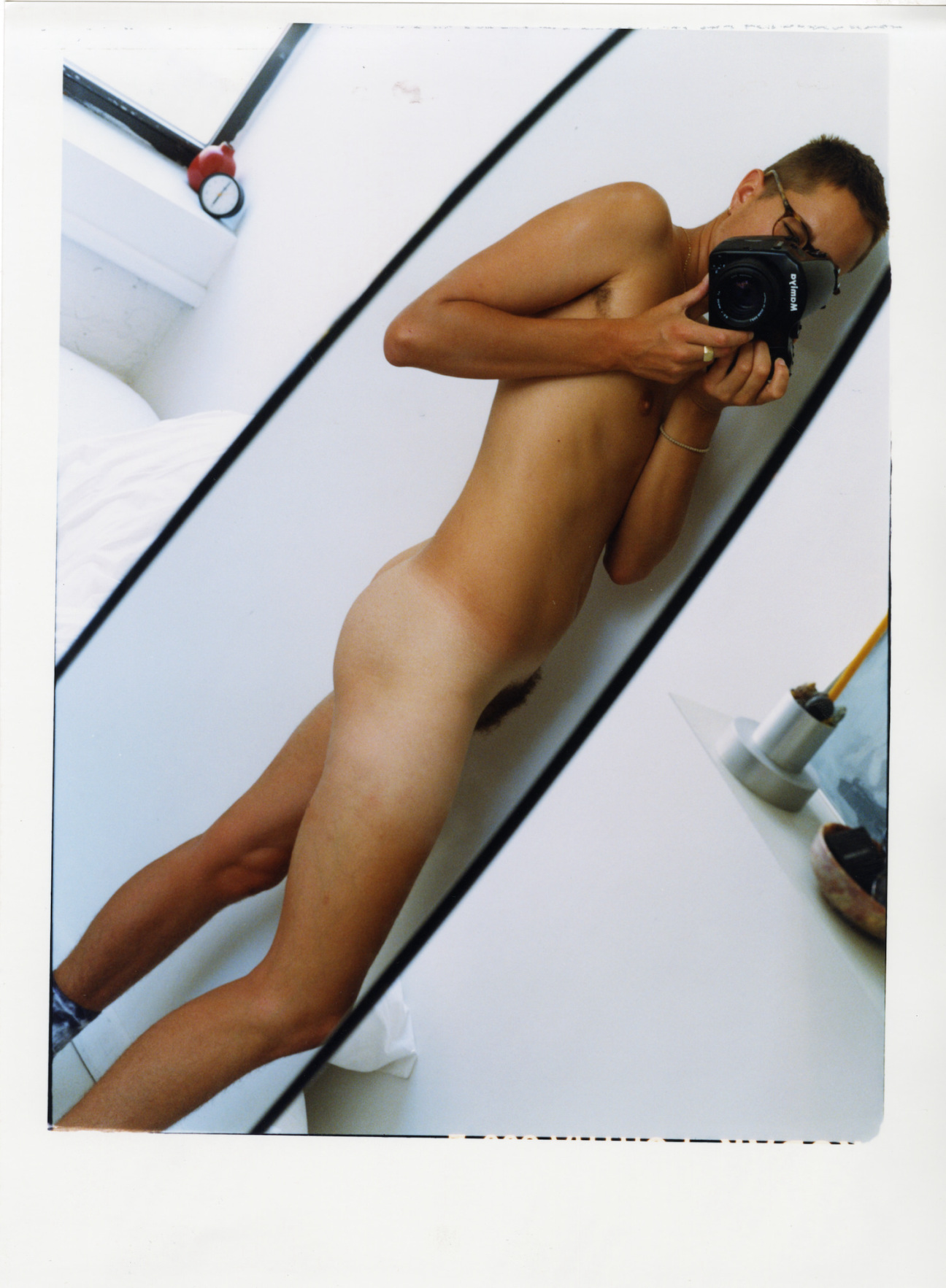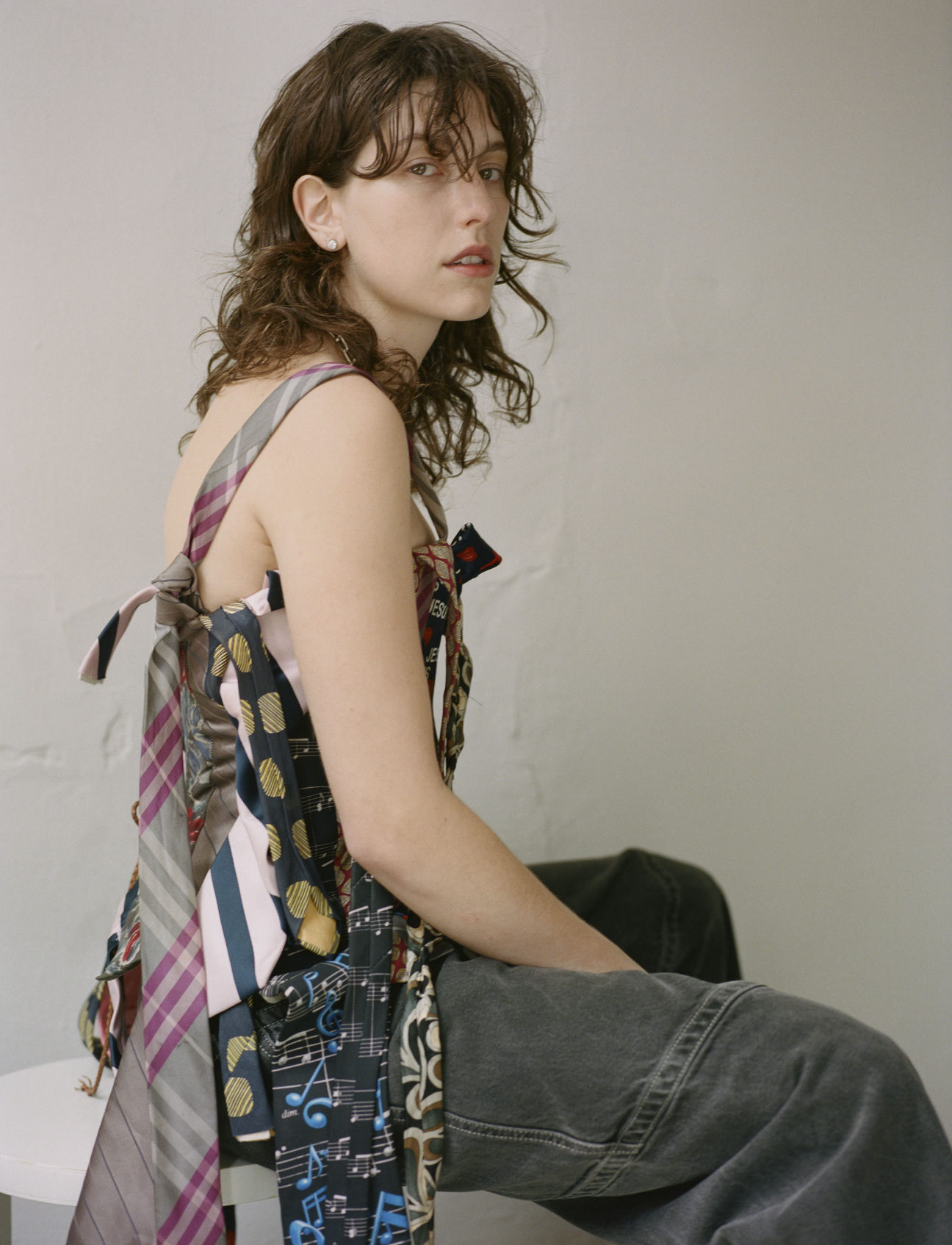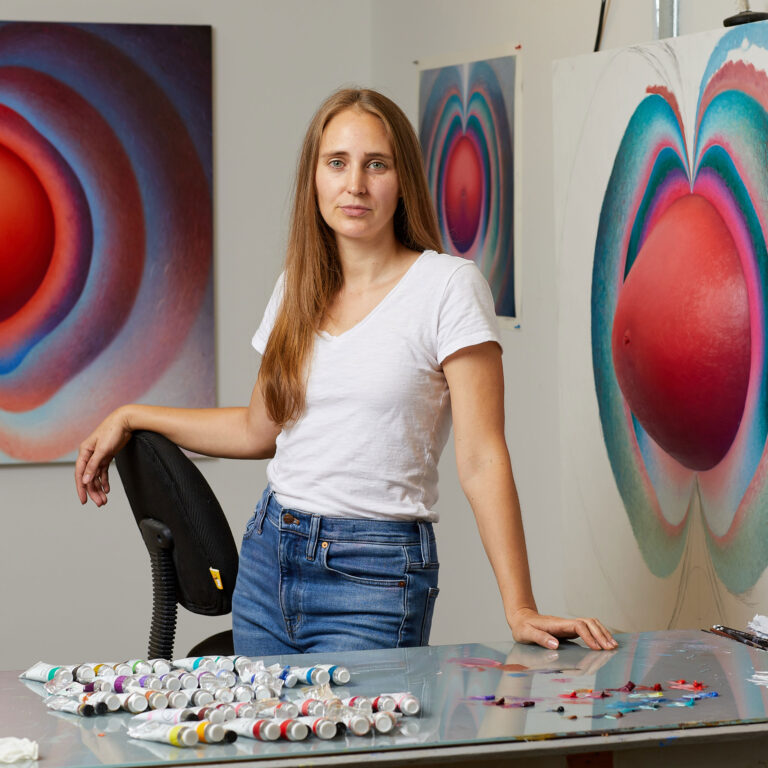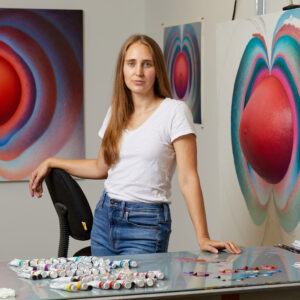
Angalis Field was sure of two things when he graduated from Columbia University’s Barnard College with an English degree in 2016. First, he wanted to transition. Second, he could not spend the rest of his life writing alone at a desk. A third realization dawned upon the young creative in the following months: He wouldn’t be fully satisfied if he limited himself to photography, either.
By then, he was already known for his bittersweet documentation of bodies, often queer ones, in states of leisure. The now 29-year-old cut his teeth in the downtown New York photography scene as a casting intern for Ryan McGinley while building out a portfolio of bedroom and beach portraits of the city’s beau monde.
Two years out of undergrad, he had added a few more laurels—a solo show at Baby Company, Company Gallery’s erstwhile experimental satellite, and editorials for the likes of the New York Times and i-D—to his CV. But he was restless, and needed another medium to expand his vision.
“This might sound bad, but I knew that I wouldn’t be intellectually challenged enough if I committed only to photography for the rest of my life,” he admits over the phone. “It’s only a sliver of me, and very much connected to my childhood.”

The medium entered Field’s life as an adolescent. His grandmother, a hobby photographer, was his first teacher: She would pass down her cameras whenever she upgraded, and whisk Field away from his Portlandia-esque Oregon childhood—“I grew up with a Volvo, listening to John Denver and Cat Stevens, and going to farmers’ markets”—for picturesque getaways to Arizona and the Virgin Islands.
These adventures molded Field’s understanding of image-making as an escape more than an occupation, an act of distinct and contained temporality. Today, cordoning off the practice from the rest of his life is as much a necessity as a ritual. “Otherwise, I find it too overwhelming,” he explains. “Once you introduce a camera, I enter a world in which everything has to be framed. That makes it incredibly hard to move through the world.”
Field didn’t completely abandon photography after this postgrad epiphany—instead, he opted for a craft that offered a confluence of his visual and literary loves: directing. He began an MFA in film at New York University’s Tisch School of the Arts in 2019, and plans to graduate next May.
The program brought Field back to Oregon, where he shot The Dalles, his first short, centered on an 18-year-old trans boy who stumbles on a cruising site along the Columbia River. The film, which premiered at Sundance in January, grew from Field’s longtime practice of documenting Oregonian life, the results of which will be compiled in an upcoming book project. The book—a collaboration with stylist Spencer Singer, who also worked on The Dalles—is an ode to “these faces that are really specific to Oregon, people we haven’t seen before.”
Directing films has helped Field renegotiate his attitude towards photography. After all, film has a confined temporality of its own, from the build-up and climax to the denouement, and Field has channeled this expansive perspective toward his anxiety around fitting life’s moments into the static frame of a photograph.
The beauty, he realized, is in the logistics: “Everything from, Where are we getting coffee in the morning? What are we listening to on our drive to the coast? All of these things [that make] people feel taken care of, and safe enough to have an experience together,” he muses. “The photos, in some ways, are incidental.”
Want to meet more rising stars? See CULTURED's full list of 2023 Young Photographers here.










 in your life?
in your life?

